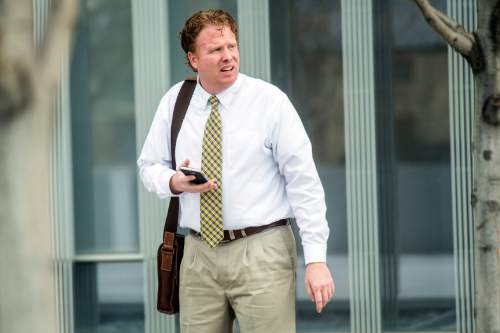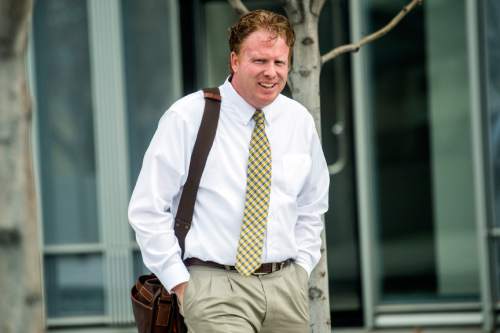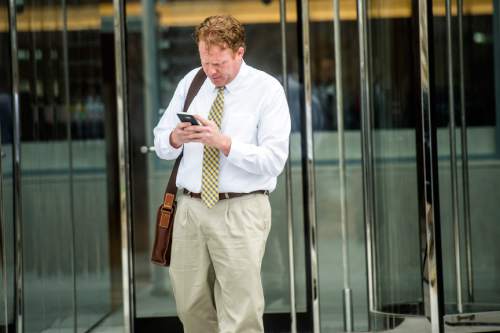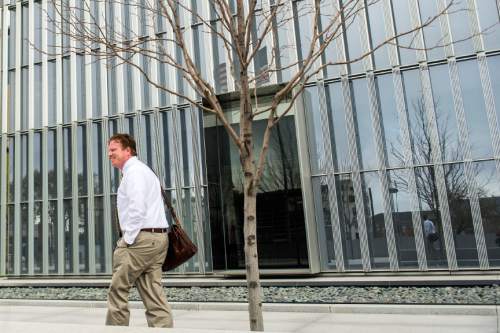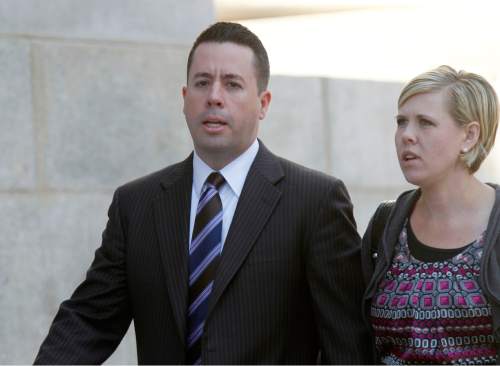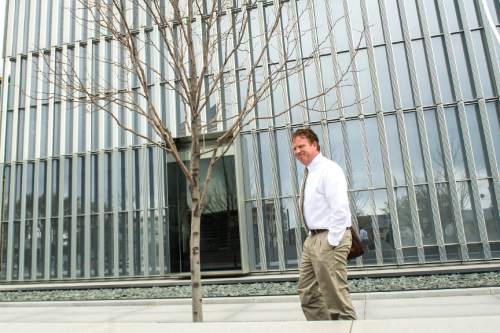This is an archived article that was published on sltrib.com in 2016, and information in the article may be outdated. It is provided only for personal research purposes and may not be reprinted.
The case against St. George businessman Jeremy Johnson began to wind down on Tuesday with the defense increasingly focused on its contention that a key government witness not only knew, but came up with, the plan that is at the heart of the 86 criminal charges in the case.
U.S. District Judge David Nuffer sent the jury home early on Tuesday after telling them that Wednesday would be the last day of testimony before closing arguments on Thursday and Friday. The jury is expected to get the case on Friday.
After six weeks of trial, the 15-member jury will be pared of three alternatives and could then begin deliberating on the charges that center on allegations of bank fraud.
Federal prosecutors allege that Johnson and two former top-level employees of his online marketing company I Works Inc. found themselves in desperate straits in 2009 when banks began to shut down their accounts because of a large number of credit card chargebacks.
In order to keep the business afloat, the three allegedly set in motion a scheme to create a series of companies using the names and personal information from employees and family members, and then used those companies to hide their relation to I Works and open new accounts.
The defense has increasingly tried show that the owner of a company that set up the new bank accounts knew everything and even advised Johnson on how to go about setting up the accounts used to charge credit cards.
During testimony for the prosecution earlier in the trial, the owner of CardFlex Inc., the company that established the accounts for I Works, testified that Johnson and others had fooled him into believing that the new companies were going to be small "mom-and-pop" businesses looking to sell products online.
But Andy Phillips said that Federal Trade Commission attorneys had "pounded" into him evidence that Johnson and others set up a scheme to hide their involvement in the new companies, and he bitterly said that Johnson had ruined his business.
Johnson, who has been acting as his own attorney, questioned a former manager at I Works, Loyd Johnston, about his contacts with Phillips and what he believed Phillips knew about the plan for the new companies.
"Did he ever express any concerns with this business model?" Johnson asked Johnston, who had been a prosecution witness earlier in the trial but was called back to the stand by the defense.
"No," Johnston replied.
"Did he know these were I Works accounts?"
"Ya, he knew what it was."
The defense also has tried to emphasize evidence or testimony that shows that its problems with chargebacks in early 2009 were due to outside companies to which it provided services. The opening of many new accounts was an effort to isolate those companies so I Works could deal with the chargeback problem, said Ryan Riddle, the former I Works general manager who is a defendant in the case.
"We had an issue early on with rogue affiliates that we didn't control," said Riddle, who also is acting as his own attorney. "We didn't know who they were."
In cross-examining Riddle, Assistant U.S. Attorney Michael Kennedy brought back an email from Johnston about setting up new accounts.
"This will only work if the acquiring bank doesn't recognize I Works," the email says.
Riddle said he couldn't answer questions about the email without discussing the "backstory," and Kennedy wouldn't allow him to do that.
One other area the defense has been emphasizing is Wells Fargo's role, or lack thereof, in opening the accounts.
The prosecution admitted before trial that the bank never lost any money despite the alleged fraud, but said that under the federal law the defendants only had to intend to defraud a bank in order to be convicted.
The defendants have said CardFlex had full authority from Wells Fargo to open new accounts without getting the bank's approval and that is was only after the Federal Trade Commission started an investigation that Wells Fargo became involved and terminated its relationship with CardFlex.



